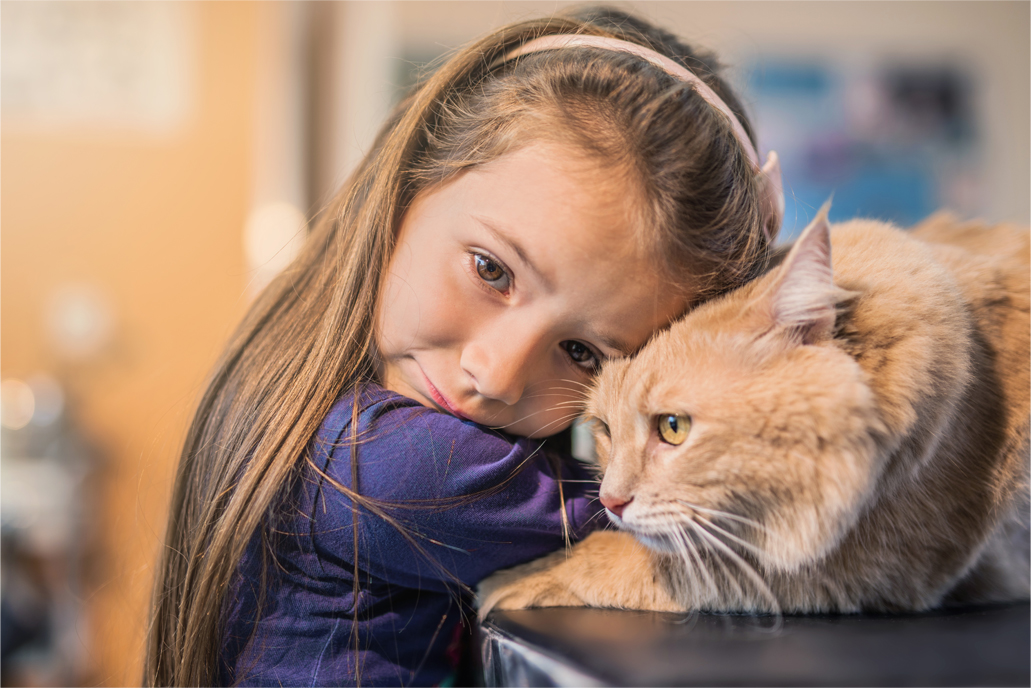
This month, we are focussing on what it means to own and care for a cat. There are all sorts of things to consider for these curious, often independent furry friends. So far, we have explored how to find the right cat (or kitten) for you and how to safely introduce it to your home. You can catch up with any of this information in our blog post – click here. We have also provided helpful insights into the benefits and drawbacks of whether to have an indoor cat or an outdoor cat, and you can read more about this here.
Today, we’re going to cover some of the common health problems in our feline friends. Cats often hide early signs of illness, and these can get missed by their owners, so to help get the right support when it's needed, our vet Niall Hughes has given us some useful insight into the issues he most frequently sees.
Book an appointment

Parasites: Fleas & Worms
Intestinal worms are a common problem in cats and kittens. There are three main types of worms your cat can suffer with: roundworm, tapeworm and lungworm. Worms can prove fatal, and are particularly dangerous in kittens, who can pick them up through their mother’s milk; so if you recognise any of the symptoms below, it’s advisable to speak to us quickly.
- Diarrhoea
- Weight loss
- Change in appetite
- Vomiting
- Itchy bottom
If your cat has become infected with lungworm – often passed on by eating infected birds, frogs or rodents – there are additional symptoms to be aware of. These include:
- Changes in behaviour, such as low energy.
- Breathing problems, coughing, tiring quickly or fainting.
- Bleeding problems, such as bruising easily, blood blisters on the gums, pale gums or nose bleeds.
Roundworms can cause problems to human health. They can cause infection when handling contaminated soil, sand or cat faeces. Often the symptoms are mild, such as a cough, headache, temperature and stomach pain. But is some cases, the organs can be infected, causing severe symptoms of fatigue, weight loss, breathing difficulties, seizures and blurred vision.
Fleas live on the skin of a cat, hidden in the fur. If left untreated, they will cause unnecessary complications. Scratching can cause the skin to bleed and become infected. Fleas will feed on your cat’s blood, and over time, this can lead to anaemia. Fleas are also a part of the lifecycle of the tapeworm, so an infestation of fleas can lead to an infestation of tapeworms. Symptoms to look out for include:
- Constant scratching.
- Frequent licking/grooming.
- Red or irritated skin.
- Loss of fur.
- Skin infections or hot spots.
- Black dots (flea dirt) on the skin.
Not only do fleas cause discomfort for your pet, but they can also bite humans and lay their eggs elsewhere in your home, leading to all round misery for you and your family.
There are treatments and sprays to address an infestation of parasites, but our best advice is prevention rather than cure as the problem is so easily avoided with regular treatment. The most effective medication to give a cat can only be prescribed under licence ie from your vet, so we strongly recommend booking an appointment so that we can check if your cat is receiving the right preventive care.
Feline Leukaemia Virus (FeLV)
One of the most common causes of death and disease in domestic cats is Feline Leukaemia Virus. This disease weakens and debilitates the immune system allowing secondary illnesses to take hold. It is shed through many of the body’s fluids including saliva, nasal secretions, urine, blood, even faeces. It can be passed to kittens in the womb or through the mother’s milk. Bites and scratches from other cats can transmit the disease and this is often the source. Not the easiest of illnesses to spot initially but if you notice any of the following symptoms, book an appointment to talk to us about your concerns:
- Loss of appetite and weight loss
- Poor coat condition
- Pale or inflamed gums
- Fever
- Seizures
- Vomiting and diarrhoea
- Enlarged lymph nodes
- Respiratory distress
- Lethargy
- Changes in behaviour
We’ll run a series of blood tests, as this is the only way to effectively diagnose this condition.
FeLV can be prevented with a vaccination programme, but once contracted, unfortunately it's incurable; so an excellent reason for keeping your cat’s vaccinations fully up to date.
Giving your cat the best care
There are many common cat illnesses that can be avoided with a good routine of preventive care. Being alert to the early signs of illness and seeking the right advice will also help to give your cat the best chance of a full recovery. Taking care of your pet’s health doesn’t have to be a financial burden either. Think about what is best for your circumstances and learn about your options. At The Pet Vet, we have an excellent Pet Health Plan that allows you to spread the cost of routine checks and preventive treatments over the year. Read more about our Pet Health Plan here and see how easy it is to stay on top of the things that matter.
